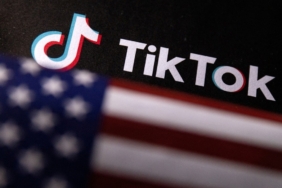Meta has embarked on a trial of facial recognition technology aimed at identifying fraudulent advertisements and facilitating quicker account recovery for users. Announced on Monday, the initiative primarily aims to combat “celeb-bait” ad scams, wherein criminals exploit images of celebrities and public figures to entice users into clicking malicious links. Additionally, the Menlo Park-based company is exploring the use of video selfies as a means for users to regain access to compromised accounts. The company’s goal is to enhance user safety by actively eliminating harmful content from its platforms.
In a recent newsroom post, Meta outlined its strategy for deploying facial recognition technology. The approach encompasses two main objectives: the identification of “celeb-bait” ad schemes and the streamlining of identity verification for account recovery.
Meta underscored the prevalence of “celeb-bait” scams on its platforms, stating that fraudsters frequently leverage images of well-known personalities to entice user engagement. Users are prompted to click on fraudulent links, often falling prey to these scams due to their trust in the associated celebrity.
Previously, Meta relied on its internal ad review system to differentiate between genuine and fake advertisements. Utilizing machine learning, this system evaluates millions of ads across its platforms by analyzing the content, including text, images, and videos. The introduction of facial recognition technology aims to enhance this existing framework.
The company is currently conducting limited trials of facial recognition to match faces in advertisements with publicly available profile pictures from Facebook and Instagram. If a match indicates a scam, Meta will automatically block the advertisement. This technology is also employed to identify and prevent accounts impersonating public figures.
At this stage, Meta is focusing its testing on a select group of celebrities and public figures to refine the detection process’s efficiency and speed. “In the coming weeks, we’ll begin notifying a broader range of impacted public figures about their enrollment in this protective measure,” the company stated. Public figures enlisted in this initiative will have the option to opt out through the Account Centre.
Facial Recognition in Account Recovery
In addition to the ad detection efforts, Meta is experimenting with facial recognition to aid users in recovering access to compromised accounts. Sometimes, automated systems mistakenly flag accounts as suspicious and lock them, particularly in cases of unauthorized access attempts. In situations where users forget their passwords, identity verification has typically required the submission of a government-issued ID.
Under the new trial, users will be able to upload video selfies for account recovery. The facial recognition technology will analyze the video data and compare it to the profile pictures associated with the account in question.
Meta assures that any facial data generated during this process will not be retained once the comparison is completed, whether or not a match is found. Additionally, the company has pledged that the video selfies will be encrypted and will remain unseen by others, including friends and contacts on Facebook and Instagram.






